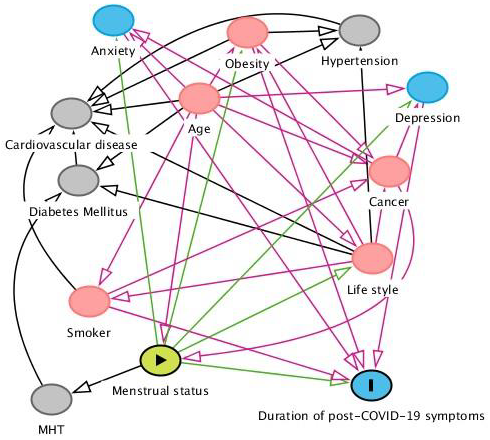
Article:
Anxiety but not menopausal status influences the risk of long COVID-19 syndrome in women living in Latin America
Faustino R Pérez-López, Juan Enrique Blümel, María Soledad Vallejo, Ignacio Rodríguez, Konstantinos Tserotas, Carlos Salinas 6, Marcio A Rodrigues, Claudia Rey, Eliana Ojeda, Mónica Ñañez, Carlos Miranda, Marcela López, Karen Díaz, Maribel Dextre, Andrés Calle, Ascanio Bencosme.
Maturitas. 2024 Feb:180:107873. doi: 10.1016/j.maturitas.2023.107873. Epub 2023 Nov 2.
DOI: 10.1016/j.maturitas.2023.107873
A multicenter study, in which Ignacio Rodriguez, head of the Research Support Unit of Dexeus Mujer, has participated, analysed the possible relationship between persistent COVID -19 and various clinical and sociodemographic factors in a group of women from 9 Latin American countries. The study included a sample of 347 patients: 70 were in the premenopausal stage, 48 in perimenopause and 229 in menopause.
The authors compared several variables by applying various scales and methodologies and used a direct acyclic chart to identify factors related to persistent COVID.
Overall, women with long-COVID-19 syndrome had poor lifestyle, severe menopausal symptoms, hypertension, insomnia, depression, anxiety, chronic diseases/conditions, risk of hospitalization, sleep disturbances, and poor menopause-related quality of life compared with women without the syndrome.
The authors conclude that among the selected factors: age, obesity, anxiety, depression, cancer, lifestyle, smoking and menstrual status, only anxiety was significantly associated with long-COVID-19 syndrome. There was no significant influence of menopausal status in the studied population.
